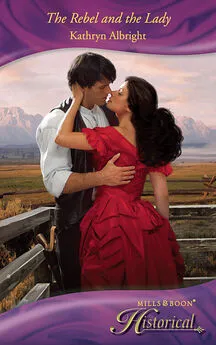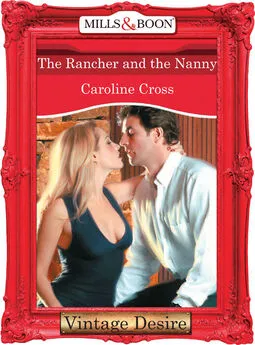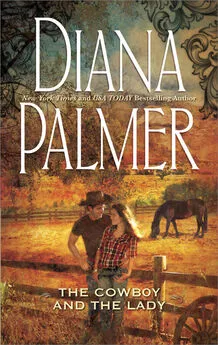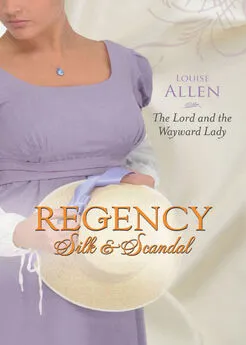John Creasey - The Toff and The Lady
- Название:The Toff and The Lady
- Автор:
- Жанр:
- Издательство:неизвестно
- Год:неизвестен
- ISBN:нет данных
- Рейтинг:
- Избранное:Добавить в избранное
-
Отзывы:
-
Ваша оценка:
John Creasey - The Toff and The Lady краткое содержание
The Toff and The Lady - читать онлайн бесплатно полную версию (весь текст целиком)
Интервал:
Закладка:
“Find him and Shayle, instead of leathering me,” said Rollison, and rose to go.
He did not like being on strained terms with Grice, and was not sure that he was justified in respecting Gwendoline’s confidence. The rumours about Barrington-Ley’s financial position had not yet reached him, but if they materialized he would have to tell Grice of Gwendoline’s suspicions. On the other hand, Grice might have invented these rumours to try to make him talk.
As Rollison saw the position, there was a possibility that the root cause was a domestic upset in the family.
He went to Gresham Terrace, still troubled but much more alert than he had been for days. Grice might be right in his fears for the lost lady’s life, and he could not get out of his mind the fact that Marcus Shayle had wanted to know what she said while she was unconscious. The contradictory motives puzzled him most.
As he inserted his “key in the lock, the door opened—a sure sign that Jolly did not want it known that he had returned. He entered, without speaking, and Jolly closed the door without a sound. Voices came from the living-room—the first a woman’s voice which startled him.
“Miss Armitage has called, sir,” whispered Jolly, “with her sister.”
“Have they said what they want?” asked Rollison.
“Not freely, sir. They have, however, been quarrelling since they arrived. I have heard an occasional word, and I thought you might like to play upon their differences of opinion.”
Both girls were sitting down when he entered the room, and both looked eagerly towards him. The first thing that struck him about Janice Armitage was her youthfulness; she looked no more than sixteen or seventeen. The second thing was her clothes; she was extremely well-dressed—far better than her sister. She wore a dark green coat and a dress of the same material, the coat trimmed with sable. There was something comical about her face. It was round and she had the snub nose which seemed to run in the family, but none of Phyllis’s prettiness or air of perpetual surprise. She had very round eyes, a wrinkled forehead and a petulant mouth.
“Why, hallo!” said Rollison, as if greeting old friends, “how nice to see you!” He shook hands first with Janice, who looked taken aback. “Phyllis, you deceived me, you didn’t tell me how attractive your sister was!” He stood back, still holding the younger girl’s hand, admiration in his eyes—and she fell for it as if she had never had a compliment in her life.
“Why, hello,” she said, in a voice of exaggerated refinement. “I’ve so wanted to meet you, Mr. Rollison.”
“If I’d known the truth I would have wanted to meet you,” said Rollison. He turned to Phyllis and took her hand—and winked. The expression of amazement on her face faded, and she hid a smile. “Now, isn’t it time for a drink?”
“I don’t” began Phyllis.
“Don’t take any notice of Phyllis,” said Janice, with a moue, “she’s a sober old stick. I’d love a gin-and-It.”
Rollison went to the wall and pressed the bell, although he was quite sure that Jolly was standing near the door. After a discreet pause, Jolly entered. Rollison imagined that the younger girl would get a kick out of having the drinks served by Jolly, and as she preened herself and tucked a few odd strands into the regimented waves of her hair, he knew that he was right to butter Janice Armitage excessively.
“And you?” he asked Phyllis.
“I’d rather not,” said Phyllis, and then relented. “Well, perhaps a sherry.”
“Dry or sweet?”
“Dry, please,” she said, and Rollison beamed at Janice and said that he would follow her example. He watched Jolly’s impassive face as the drinks were poured. Then Jolly retired and Rollison drank to his guests. Janice made it clear that she was mostly pleasantly surprised.
“I don’t know why Phyllis wanted me to come,” she said, “and I don’t mind admitting that at first I didn’t want to—not a bit. I don’t often get on with friends of Phyllis’s. You’re different, though I don’t know where on earth she met you.”
Rollison smiled. “We can’t tell you all our secrets.”
“Oh, go on,” said Janice.
“It doesn’t matter,” said Phyllis. “Mr. Rollison, I told you that Janice was engaged to Marcus Shayle, didn’t I?”
“What does that matter—I’m not now,” said Janice, tartly. “There’s no need to bring that up.”
“There is,” said Phyllis, wearily. “You’ve been hearing from him.”
“I tell you I haven’t! And it’s no business of yours if I have, and I certainly don’t see why it should concern Mr. Rollison. A girl can have a letter now and again, can’t she?”
“Marcus Shayle,” murmured Rollison, “is wanted by the police. Don’t you know that?”
“Well. I don’t know where he is,” said Janice, “and I certainly don’t think Marcus would do anything wrong; the police are fools, everyone knows that. It’s really too bad!” she went on, raising her voice, “you didn’t say you were going to talk about this with Mr. Rollison, he doesn’t want to hear—do you?”
“Only if you can tell me where to find Shayle,” said Rollison, improvising magnificently. You see, he once let a friend of mine down rather badly, and I’d like a few words with the gentleman. Still, if you don’t know where he is” He paused, invitingly, and Janice jumped in.
“I certainly don’t! And I am not receiving presents from him. I don’t have to explain to Phyllis every time I have a new dress, do I?”
Phyllis’s expression told Rollison that he now knew the whole purport of the call. So he sympathized a little with Janice and said that he was sure she deserved every present she received. Janice, elated at scoring a triumph over her sister, grew more and more fulsome, and drank more and more gin-and-Italians. Phyllis sat back, with a look of hopeless resignation.
Finally it transpired that Janice was receiving letters from Marcus Shayle, letters with a Devon address—an address where Janice had once been to see him. Everything was very proper, of course, and after all they had been engaged, hadn’t they? She was nearly drunk by then, and grew a little maudlin, while Phyllis sat back, disapproving and, Rollison thought, angry and hurt by the exhibition which her sister was making of herself.
Then Janice wanted to powder her nose.
Jolly escorted her with great dignity to the bathroom, leaving Rollison free for a word with her sister. Phyllis got up quickly, and said:
“I knew she was hearing from him and that he was sending her money. I couldn’t make her tell me where he is, but I thought you might. I have done right, haven’t I?”
“Perfectly, in more ways than one, but let’s change the subject—have you seen the patient again?”
“No,” said Phyllis, startled. “Isn’t she still at the nursing home?”
“They say that she made a voluntary departure,” said Rollison. “Do you know whether Marcus Shayle has anything to do with the nursing home?”
“No.”
“Have you ever seen him in the company of a fat man with
a nice taste in broad checks?”
“No,” said Phyllis, “but Janice knows him much better than I do.”
Janice was more dignified on her return, and Rollison decided not to press the inquiry about the little fat man. He made an appointment with Janice for the next day, for lunch, and then ushered them out. When they had gone, Rollison drew his hand across his forehead and became aware of Jolly standing at his side.
“Two very different beans out of the same pod,” said Jolly, gravely.
Rollison laughed. “Very different is right.”
“Are we going to Devonshire, sir?” asked Jolly.
“Not yet,” said Rollison, “but we are going to cheer Grice up. If Shayle’s at the Devon address the police will get him before the night’s out.” He went to the telephone and tried Grice’s home number.
“How much is Shayle’s address worth?” Rollison asked.
“What?” cried Grice. “Have you got it?”
Rollison passed on the necessary particulars. The Superintendent was in such a hurry to get in touch with the Devonshire police that he did not even ask Rollison where he had obtained the information, but rang off and said that he would look in later. Rollison replaced the receiver, paused for a moment, and then said slowly: “Jolly.”
“Yes, sir.”
“If she is alive, I am going to find Lady Lost.”
“I am sure you are sir,” said Jolly, “I have no doubt at all about that. I—excuse me.”
He made his dignified way towards the hall and the front door, for the bell had rung. Before he opened it there was another ring, which did not stop until there was an exclamation from Jolly—one so unexpected and so out of character that Rollison was afraid his man had been hurt. He stepped swiftly to the door, putting his right hand to his pocket, an instinctive gesture, for he was not carrying a gun.
Before he looked round the door, some of his fears were dispelled, for Jolly said in a voice that was a little unsteady: “Good-evening, Madam.”
Rollison stepped forward—and he saw Lady Lost huddled in costly furs, bare-headed and very pale, push past Jolly and walk slowly towards him.
CHAPTER NINE
‘ COME BACK PETER, FLY AWAY PAUL’
ON the woman’s lips was a smile which made her the living image of that photograph; as indeed, she was. She advanced slowly towards Rollison, her right hand outstretched, and he stood still. The photograph had been a triumph of the camera’s art, but beside this woman it was insignificant, a dull shadow, a paltry thing to be forgotten.
Her eyes were hazel, the brown lashes curled upwards as if nature had been improved upon, and yet Rollison got the impression that their curve was natural. Her eyes slanted ever so little towards the temples, and her cheek-bones were high although not remarkably so; certainly the type was not English. But what most attracted him was her complexion. There was not a tinge of colour in it; it was like alabaster, pale and glowing, so perfect that it did not seem quite real. She had used no make-up, and her lips were only faintly outlined, yet in spite of that warmth and vitality seemed to spring from her.
When he touched her outstretched hand and bowed over it, her fingers were cool.
You are very welcome,” he murmured, and into his eyes there sprang a smile, at once gallant and gay. When Jolly saw it, his own face lit up; here was the real Rollison.
“You are very kind,” said the woman.
Her voice had a huskiness which was attractive. There was a trace of foreign accent, too.
“After all,” said Rollison, taking her arm and leading her into the study, “I’ve been wanting to talk to you for a long time.”
“So I understand,” she said. “You wrote to me.”
Rollison did not correct her.
“And you lied to me,” she said slowly. “I can see that now— you have never seen me before and you do not know who I am, although in your letter you said you did.” Something of her vitality seemed to ebb, and she sat down slowly. Rollison took her coat and handed it to Jolly.
She looked up at him. “Why did you make me hope?”
“Not I,” said Rollison, “but a mutual friend. I’m glad that he wrote to you, because otherwise you would not have come.”
She frowned. “ More knavery?” The word came naturally from her lips.
“More knavery which we can counter,” said Rollison, sitting on the arm of his chair and smiling at her. “Will you have a drink?”
Читать дальшеИнтервал:
Закладка:










